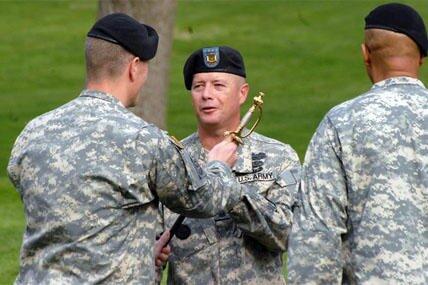
Observing Common Struggles Military Veterans Face When Re-integrating Into Civilian Life
Those who serve in the military make many sacrifices to keep the country safe. Sadly, however, reintegrating into civilian society isn’t always easy for these admirable professionals.
While many people are aware of the amazing feats of bravery that military personnel perform, far fewer are aware of the friction that these individuals feel when leaving the army. As such, more awareness should be brought to this issue in order to spur more efforts to make this transition seamless for veterans.
Here’s an observation of common struggles military veterans face when re-integrating into civilian life.
Finding the Right Career Role
When returning to civilian life, many veterans’ first challenge is that of finding a job. The reason for this is that while veterans have a wide variety of skills from their time in the military, finding the perfect career to utilize them can be tricky.
To overcome this obstacle, it can be helpful for veterans to network with other veterans and gain an idea of what type of roles they may thrive in. In addition, this can be a great time for veterans to return to school and pursue a job in a field they are passionate about.
This way, whether they want to become a lawyer to help put an end to racial bias in healthcare or a marketing professional to experience the excitement of the corporate world, they’ll be qualified to do so.
Beyond figuring out which job roles to pursue, it can also be difficult for veterans to land that first role. By finding help from others with crafting resumes, learning how to interview well, and networking, veterans can have an easier time landing fulfilling career roles.
Maintaining a Fulfilling Structure
In the military, personnel have strict structures that they adhere to during the time that they serve. While civilians may view these disciplined structures as difficult, for military personnel they often provide a sense of security.
This being the case, veterans leaving the military often struggle with the lack of structure in their new civilian lives. To overcome this significant challenge, it’s important for veterans to cultivate new structures in their lives that they can adhere to.
Because each individual is different, the process of finding the right civilian life structure will be unique to each veteran. For some, it will involve solitary pursuits such as working out and doing housework. For others, it may involve becoming involved with various groups and taking classes.
However veterans choose to go about this process, it’s important that they recognize that a strict structure will help them transition into civilian life more smoothly.
Being Connected with the Right Resources
The truth is, that the American government has many robust resources for veterans to take advantage of in order to transition into civilian life more seamlessly and achieve a better state of well-being. However, many veterans are unsure of how to be connected with the right resources that can benefit their lives.
One amazing solution to this problem is connecting with a social worker in the Veterans Affairs office. These professionals have a deep understanding of the resources available to veterans and, as a result, can be of great help to those looking for them.
This being the case, whether a veteran needs mental health assistance to overcome intergenerational trauma or a support group to feel less isolated during their transition into civilian life, connecting with the right resources is crucial.
Connecting Socially with Others
In the military, many people experience deep bonds with those whom they serve with over the years. Oftentimes, the hardships and experiences that these military personnel share make it easier for them to forge deep connections.
When leaving the military, many veterans experience difficulty connecting with other civilians in meaningful ways. As a result, many individuals experience a sense of isolation due to their lack of social activities.
Fortunately, there are ways that veterans can overcome this acute and significant challenge. One keyway is to network with other veterans who have undergone this same transition. These individuals can be a great source of support given the fact that they have had similar experiences and can introduce veterans to a network of other friends.
Veteran Transitions Can Be Made Smoother
Though it’s not always the easiest process to undergo, veterans can thrive during their transition back into civilian life by taking the right steps and engaging in the right practices. From networking with other veterans to find career success to seeking the help of a social worker to be connected with veteran resources, there are many amazing efforts that can make a difference. Hopefully, as time goes on, more programs will be created to help these valiant veterans have a smoother transition into civilian life.